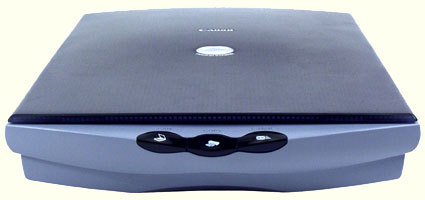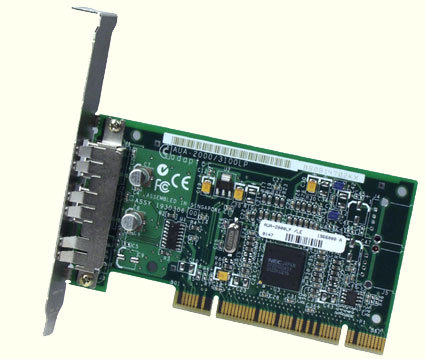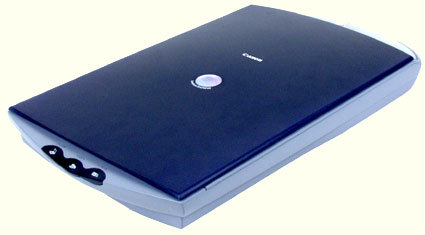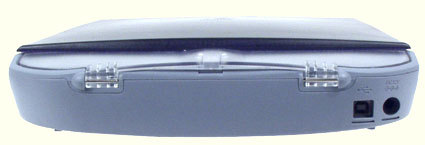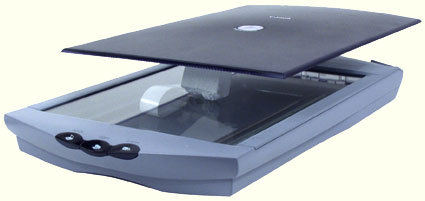Under Scrutiny: Four 1200 dpi Scanners
Canon CanoScan 1250 U2
This is not the only scanner in its category, but it is likely to be the least expensive for what you get. The CanoScan D1250U is sold in North America in the D1250U2F version, priced at $199, with a USB 2.0 PCI card. In theory, this means output multiplied by 40. In practice, we measured improvements in processing times of 15%, up to nearly 70%. When tested successively on a USB 1.1 interface and a USB 2.0 interface, the D1250U proved to be consistently faster in the second configuration. The acceleration is not particularly noticeable at low resolution (75 dpi), less than 20%. It is more obvious at 300 dpi, when scanning is up to 60% faster. The greatest improvement was noticeable at the highest resolutions, namely 1200 and 2400 dpi.
Except when operated at 75 dpi, connection to the USB 2.0 interface can be said to be responsible for increased processing speeds of around 60% - provided, of course, that the computer is compatible with the new interface. Canon recommends the installation of an Adaptec USB2connect 3100LP, which is not supplied with the scanner. We used this card in order to perform our tests using the new interface.
The PCI Adaptec USB2 connect 3100LP card.
Regarding functionality, the D1250U is a successor to this manufacturer's previous models. Two driver interfaces are available, but the first so-called "simple" driver can be disregarded, since it is restricted to resolution management only. It is better to switch to the "Advanced" mode, which contains far more parameters, such as contrast, gamma, moiré, etc. There is also the Qare function. This was present on some previous models, and is designed to clean up scratches and dust on photos. During the scanning process, the scanner compares the set of colors captured and checks to see if they are logical. It then corrects the image if there are clear discrepancies. As might be expected, the process is not 100% reliable - far from it. In some of our tests, this feature did nothing to improve the final image, which actually lost sharpness. Other tests proved conclusive, however, because the quality was surprisingly good - so much so that you might think it wasn't the same photo, that we'd used a flawless original.
The D1250U is the most reliable scanner in terms of color-rendering. It also produces the best high-resolution scans. In short, this scanner is a runaway success. It ought to meet user expectations if they intend to use it for what it is best suited, as a 1200 dpi optical scanner! If it is only used for 75 and 300 dpi scans, its full potential will never be exploited. Other scanners, such as the HP, might be slightly better for this type of use. On the other hand, anyone who needs optimal quality will always be prepared to spend the money on it. As color-faithful as it is, the D1250U tends, as usual, to darken the intermediate shades. It also has an irritating tendency to lighten the darker shades. So, while the D1250U is the best of the less expensive scanners, it's not quite perfect. But we didn't expect it to be perfect anyway, in view of its extremely reasonable price.
Note for users of the previous N1240U: the D1250U provides truer colors and is much faster.
Note: two color profiles are offered in the driver. Tests were performed with one that is "recommended" by default. The second optional driver is called Canon Color Matching. It seems to be of limited use, however, since the colors here turn out to be less true (more saturated) than with the recommended driver. By default, the color fidelity score decreases from 8.1 / 10 to 6.3 / 10 when the new profile is activated. As with the default profile, the darker shades are noticeably rendered too pale.
Get Tom's Hardware's best news and in-depth reviews, straight to your inbox.
